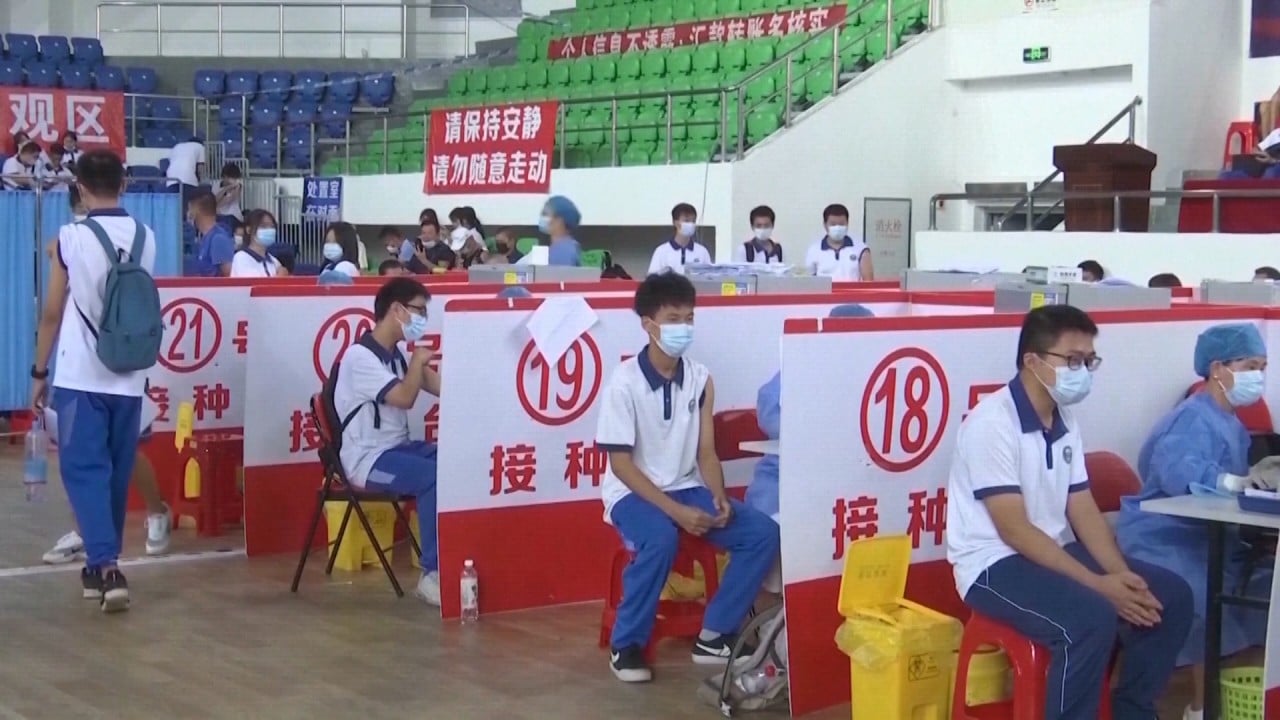
Coronavirus: US elevates Hong Kong risk level despite absence of local cases; 13 imported infections logged
- Centres for Disease Control and Prevention raises status from low to moderate, urging full vaccination for anyone considering travelling to city
- Hong Kong has recorded no local infections since August 17, with that single case now seen by local experts as likely to have been contracted at airport
In its travel advisory, the Centres for Disease Control and Prevention (CDC) on Monday urged Americans to “make sure you are fully vaccinated before travelling to Hong Kong”, adding, “if you must travel and have concerns, talk to your doctor”.
Where destinations lie on the CDC scale depends on the number of infections per 100,000 people and a “new case trajectory” over a 28-day period, though no specifics about how that is calculated are provided on its website.
The four levels range from “low” to “very high”, with the latter meaning all travel to a destination should be avoided. But how Hong Kong’s status came to be downgraded remains unclear, with local experts left bewildered by the decision.
Professor Benjamin Cowling, head of epidemiology and biostatistics at the University of Hong Kong, said he thought it was a mistake on the CDC’s part. “Give it a few days, probably they will correct it,” he said.
On Tuesday, local health authorities confirmed 13 new cases, all of them imported, including five from Morocco and two from the Philippines. The latest infections took the city’s overall count to 12,209 cases, with 213 related deaths. Fewer than 10 preliminary-positive cases were reported.
Health officials also launched an ambush-style lockdown in North Point for overnight Covid-19 testing of residents, the first in many weeks. The operation at Two Island Place was the result of a suspected re-positive case. The man, who had been infected with Covid-19 in India in April, was found to be positive after being tested in Hong Kong on Monday, but the viral level was low.
In a separate development, the authorities slapped a fresh two-week ban on Qatar Airways from flying into the city after four of its passengers tested positive for Covid-19 on arrival at the airport. The ban runs until October 11. Turkish Airlines also withdrew flights for sale until October 12, indicating health officials had also banned the carrier.
The city has not seen a locally transmitted coronavirus infection since August 17, when a 47-year-old airport worker was listed as a local case without a known source. Even in that one instance, local health officials have since conceded the woman was probably infected at the airport rather than in the community.

01:37
With over 2.19 billion shots in arms, China has fully vaccinated 78 per cent of its population
Aside from Tuesday, the city has not reported more than 10 imported cases in a day – typically far fewer – since late August, nor has it experienced an outbreak of the more infectious Delta variant. It last reported a higher number on August 27, when 17 imported cases were confirmed.
The US, by contrast, remains deep in the throes of a resurgent Covid-19 wave, with its current seven-day average for new cases at more than 114,000 a day, according to the CDC.
The CDC on Monday also raised the risk level for Singapore from moderate to high, meaning all unvaccinated travellers should now avoid non-essential travel to the city state.
Singapore has reported a daily tally of more than 1,000 new Covid-19 cases since mid-September, following its shift to a strategy of living with the virus and opening its border for quarantine-free travel to some countries with high vaccination rates.
Police arrest man, 75, who escaped from hotel quarantine after arriving from Europe
But while the case numbers have surged in the past 28 days, 98 per cent have experienced only mild symptoms or been asymptomatic, according to Singapore’s Ministry of Health.
Respiratory medicine expert Dr Leung Chi-chiu said that while the decision to upgrade Singapore was easier to understand, he could not think of any public health reasons to do the same to Hong Kong.
“It could be done out of reciprocity, which is a common principle in international relations, since Hong Kong has required arrivals from the United States to be vaccinated,” he said.
“But there is virtually no risk of transmission or catching the virus for US travellers in Hong Kong.”
The Post has contacted both the US consulate in Hong Kong and the CDC seeking comment.
The city’s Food and Health Bureau declined to comment on the CDC’s move, saying it only had a responsibility to set policies for inbound travellers.
Additional reporting by Danny Lee
